How Mathematical Thinking Transforms Your View of Life
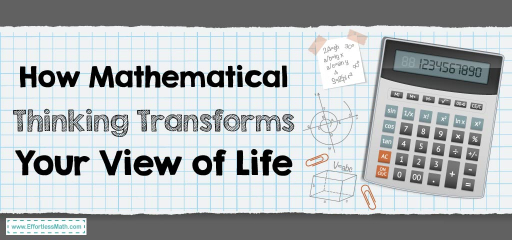
You likely believe that math is merely numbers, formulas, and examinations that you needed to take and pass at school. Yet mathematical thinking does not just exist in text books. You can look at the whole world through the prism of mathematics.
Mathematical thinking is the ability to notice patterns, consider probability, make informed decisions based on the data, and see beautiful patterns that underlie everything in the world. When you begin to view life in this perspective, everything becomes different.
The Art of Strategic Thinking
Mathematical thinking naturally develops your strategic skills in ways that transform how you approach challenges. Games become particularly fascinating once you understand the underlying mathematics. Modern poker online sites where you can play for real money have transformed the game into a data-rich environment where mathematical skills give players a real edge. The best platforms now offer detailed statistics, hand histories, and analytical tools that let mathematically-minded players track their performance and optimize their strategy.
This strategic mindset extends far beyond games. In negotiations, you consider multiple scenarios and their probabilities. In project planning, you account for various risk factors. You develop “systems thinking,” seeing how different parts of complex situations interact with each other.
The Pattern Recognition Revolution
Once you start seeing mathematical patterns, you’ll notice that they’re everywhere—pinecone spirals, traffic light timing, even how conversations flow at parties. This becomes your superpower. Your efficiency will begin to go in cycles. Perhaps you perform best between 10 AM and noon or you have a crash every Tuesday afternoon. Such trends are simple to monitor and resolve.
You get to see behavior patterns in relationships that do make sense. When your significant other gets stressed on Sunday evenings before the Monday meetings, you react with empathy rather than bewilderment.
Decision-Making Gets an Upgrade
Mathematical thinking changes how you choose by adding probability and expected value to the mix. Instead of pure gut instinct, you weigh outcomes systematically.
Take restaurants. Normal thinking is either on the optimistic side (this may be great) or pessimistic side (what if it stinks). The mathematical mind takes the odds: “This place is 4.2 stars with 847 reviews, the other is 4.8 with 23 reviews.” You have a feeling that the larger sample is more important.
More important actions such as changing careers, investments, or even where to stay can be tackled easily when you put them in terms of probability, cost, and the expected outcome.
Risk Assessment Becomes Second Nature
Mathematical thinking fixes how you see risk. You quit having panic attacks about plane crashes (which rarely happen) and neglect things that do make a difference, such as buckling your seatbelt daily. It is strange that we are afraid of the things which are not so dangerous, and math makes you concentrate on those things which are really dangerous.
The same thing happens with money. Instead of avoiding the stock market because it goes up and down, you learn to tell the difference between smart risks and dumb ones. Diversification stops being some fancy finance term and becomes obvious—spread your bets so one bad thing can’t wipe you out.
Everyday Beauty Through Mathematical Eyes
Beauty is not less interesting but more with mathematical thinking. After you learn about the Fibonacci sequence, you see it everywhere: in flower petals, seashells, and even building designs. It is much more sensible to listen to music when you know how frequencies can generate harmony, and how rhythm has a pattern.
Several aspects improve, like cooking, when you understand the ratios that do work. It is not a question of making everything cold math–it is of discovery that the stuff we already believe to be good typically does operate by mathematical laws. The golden ratio appears in art and in nature since our brains are conditioned to appreciate those ratios.
Problem-Solving Gets More Systematic
The math way of thinking provides you with a set of tools to tackle problems more methodically. You get to know how to tackle complex problems and divide them into small and manageable ones.
This manifests itself in practical terms all the time. When your daily trip to the office takes longer than it should, you do not simply feel frustrated, you begin to examine the system. What are the variables? Is it the time of the day, weather conditions, road work or something? Is any of these variables controllable or adjustable to?
Personal challenges are assisted in the same systematic fashion. Whether it is relationship conflicts, career choices or a health complication, it can make the situation less daunting when you are able to recognize the main variables and be able to systematically think through various courses of actions.
Time and Probability Reshape Your Perspective
You no longer explain every favorable event by sheer skill and every unfavorable event by sheer ill fortune. Rather, you gain a more subtle appreciation of the interplay between chance and skill. This results in improved emotional control. When things turn bad, you are able to evaluate whether it was as a result of a bad decision, or bad luck, or both.
You also get more patience with the long term processes. Knowledge of such concepts as compound growth makes you recognize the importance of small consistent actions that may have dramatic effects in the long run. Be it acquiring a skill, forming relationships, or getting healthier, mathematical thinking will allow you to remain dedicated to the process in which you will not see quick results.
The Confidence Factor
With more natural mathematical thinking, you also gain what researchers term statistical confidence: comfort with uncertainty and variability. You no longer require perfect information to make decisions and you get improved at acting on imperfect information. We’re not talking about being careless but rather getting used to the fact that most decisions have some degree of uncertainty. You simply need to practice making good decisions in the face of uncertainty.
Another benefit is that you are less prone to different cognitive biases. The knowledge of such concepts as regression to the mean allows you not to overreact to extreme events. Being aware of selection bias leaves you rather doubtful about dramatic success stories that fail to explain all the failures you never heard of.
Living the Mathematical Life
Learning to think mathematically does not mean that you have to be a mathematician. You do not have to have advanced degrees or complicated calculations. All you have to do is to begin seeing patterns, reasoning probabilistically, and attacking problems in a more systematic way.
Start small. Observe routines in your everyday life. Consider trade-offs in decision making. When assessing claims, think about base rates. Train yourself to split complex issues into simple ones.
Wrapping It Up
Mathematical thinking is not turning life into a spreadsheet but recognizing the beautiful patterns and connections that always existed. When you begin to think mathematically you find that the magic was mathematical anyway. Mathematical thinking does not only alter the way in which you solve problems, it also alters the way in which you experience the world as it is.
Frequently Asked Questions
What is the difference between mean, median, and mode?
The mean, median, and mode are measures of central tendency that help us summarize data with a single value. The mean is the average of all numbers, calculated by adding them together and dividing by the total count. The median is the middle value when all numbers are arranged in order, ideal for understanding the center of skewed distributions. The mode is the number that appears most frequently, providing insights into the most common or popular elements in a dataset. Understanding these concepts can enhance strategic thinking in everyday decisions, much like the mathematical strategies applied in games discussed in the context of viewing life through mathematics. For a deeper look into how these concepts are applied, consider exploring how to find mean, median, mode, and range.
What is a growing pattern?
A growing pattern in mathematics refers to a sequence where each term increases according to a specific rule or formula. This concept is a part of patterns and sequences, essential in developing mathematical thinking and problem-solving skills. Understanding growing patterns allows children and adults alike to predict further outcomes and see the underlying structure in complex situations, enhancing strategic thinking in everyday decisions and challenges. By recognizing and analyzing these patterns, individuals can approach problems more systematically, as discussed in contexts like strategic games and real-life decision-making in the featured post.
How do I help my child prepare for the math test?
To help your child prepare for a math test, start by fostering a love of mathematical thinking as described in the post. Encourage them to view math not just as a subject but as a language that explains the world. Utilize resources that make learning engaging and relevant; I recommend exploring the Top 10 Grade 3 Math Books Inspiring Young Mathematicians To Explore for excellent book suggestions. Additionally, supplement their study with practical exercises from Worksheets to improve their proficiency and confidence in handling various math problems. These tools will help them see the beauty and utility of math in everyday life, enhancing both their skills and their appreciation for the subject.
Related to This Article
More math articles
- 10 Most Common FTCE Math Questions
- FREE 5th Grade Georgia Milestones Assessment System Math Practice Test
- Top 10 TASC Math Prep Books (Our 2023 Favorite Picks)
- FREE DAT Quantitative Reasoning Math Practice Test
- Getting a Math Degree: Hacks to Make Your Life Easier
- Top 10 Free Websites for STAAR Math Preparation
- 10 Most Common 6th Grade MEAP Math Questions
- Unlocking the Power of Visualizations: How to Use Diagrams and Drawings to Master Math Concepts
- Converting Units of Length (Metric) for 4th Grade
- The Practical Benefits Of Knowing Math – The 10 Best Industries For Math Geeks
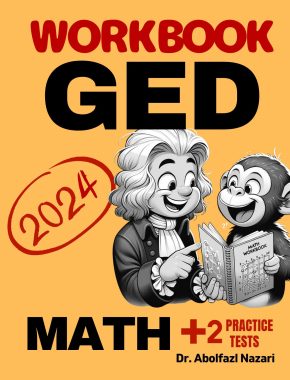
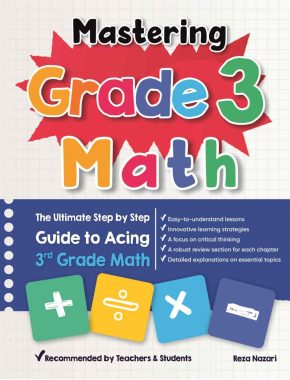


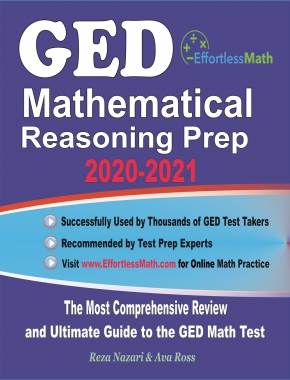
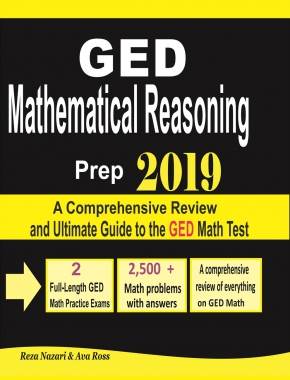
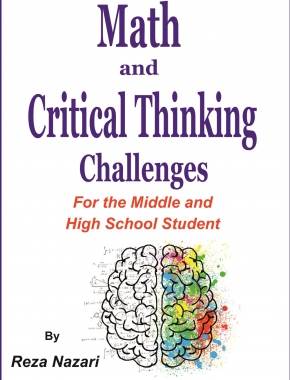




















What people say about "How Mathematical Thinking Transforms Your View of Life - Effortless Math: We Help Students Learn to LOVE Mathematics"?
No one replied yet.